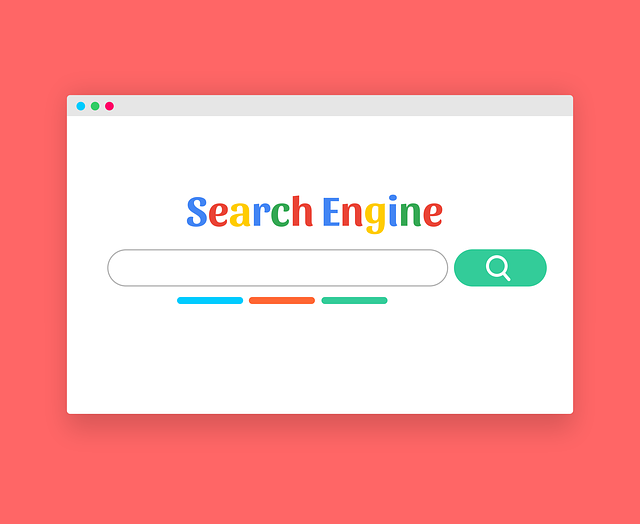Schema.org is a collaborative project offering standardized language for search engines to interpret web pages, enhancing visibility through rich snippets. Structured Data Markup using Schema.org, Microdata, or JSON-LD improves search engine comprehension and user experience by embedding explicit content details. JSON-LD is favored due to simplicity and browser compatibility. Tools validate schema markup syntax. Advanced strategies like Schema Markup for Entities and JSON-LD SEO optimize data structures, leading to Rich Snippets and increased user engagement.
In an era driven by data, structured data stands as a cornerstone of effective online visibility. Schema.org emerges as a powerful tool, offering a standardized vocabulary to convey website content to search engines. This article delves into the intricacies of implementing Schema.org for optimal Technical SEO. We’ll explore how structured data enhances search engine understanding, unlocks rich results, and navigates the complexities of modern digital landscapes. From fundamental markup to advanced strategies, gain insights to elevate your online presence.
- Understanding Schema.org and Its Role in SEO
- Structured Data Markup: Implementing the Basics
- Choosing Relevant Schemas for Different Content Types
- Enhancing Search Appearance with Rich Results
- Tools and Techniques for Schema Markup Validation
- Advanced Strategies for Technical SEO with Schema
Understanding Schema.org and Its Role in SEO

Schema.org plays a pivotal role in modern SEO strategies, offering a standardized vocabulary to communicate structured data to search engines. This collaborative project between major search giants and web developers provides a set of properties and types that help describe various entities on a webpage, from products and people to events and organizations. By implementing Schema.org, developers enable search engines to better understand the content of a page, leading to enhanced visibility in search results.
For instance, rich snippets optimization benefits greatly from Schema.org’s structured data annotations. Search engines can use this data to display enhanced results with star ratings, prices, or detailed summaries, making listings more appealing and informative for users. Schema Markup for entities, be it products, services, or reviews, allows developers to provide specific details that were previously hard to interpret through traditional HTML. This microdata vs JSON-LD debate is largely settled, as both methods utilizing Schema.org vocabulary offer significant advantages in terms of discoverability and the ability to support a wide range of rich snippet types.
Structured Data Markup: Implementing the Basics

Structured Data Markup is an essential component of Technical Schema SEO, enabling developers and content creators to provide search engines with explicit information about their web pages. By using well-defined schemas, such as those offered by Schema.org, websites can enhance their visibility and attract more relevant traffic from search engine results pages (SERPs). This process involves adding specific tags and attributes within HTML code to describe various elements on a page, like products, events, or articles, in a machine-readable format.
One popular approach is Microdata, which uses native HTML5 semantic tags to embed structured data directly into the content. Alternatively, JSON-LD (JSON for Linking Data) provides a more flexible and standardized way of representing structured information using JavaScript objects. JSON-LD SEO has gained significant traction due to its ease of implementation and compatibility with most search engines. This markup language allows developers to create complex structures, ensuring search engines can interpret and display rich results, such as knowledge graphs or featured snippets, thereby improving user experience and potentially boosting online visibility.
Choosing Relevant Schemas for Different Content Types

When implementing structured data using Schema.org, selecting the most appropriate schemas for your content types is crucial for effective Technical Schema SEO. Different kinds of content, from articles and products to events and recipes, have unique characteristics that call for specific schema markup. For instance, using `Article` for blog posts provides search engines with details about the article’s main topic and author, while `Product` schemas enhance rich results for e-commerce sites by including pricing, availability, and reviews.
Understanding the nuances of each content type allows for precise application of Schema Markup for Entities. Microdata and JSON-LD are both valid methods to implement structured data, with JSON-LD gaining preference due to its simplicity and ease of adoption. Incorporating JSON-LD SEO practices ensures your website benefits from enhanced search engine understanding, leading to more compelling rich results that can significantly improve user experience and engagement.
Enhancing Search Appearance with Rich Results

Search engines have evolved beyond basic keyword matching to deliver more engaging and informative results, thanks in part to the implementation of structured data using Schema.org. By leveraging Technical Schema SEO, developers can enhance the appearance and functionality of search listings with what are known as Rich Results—a significant improvement over traditional text snippets. These enhanced results include elements like star ratings, pricing, ingredient lists, or event details, making them more appealing and useful to users.
For instance, a restaurant’s Google listing that includes its address, operating hours, and user reviews (all structured using Schema Markup for Entities) will stand out from others on the page, increasing click-through rates and potentially driving more business. This is where Semantic SEO Tags come into play, providing context to search engines about the content of a webpage, which in turn allows them to display relevant and detailed information directly within the search results. Moreover, comparing Microdata vs JSON-LD highlights how Schema.org’s JSON-LD format offers advantages such as better browser compatibility and easier implementation for developers, making it a preferred choice for implementing structured data at scale.
Tools and Techniques for Schema Markup Validation

To ensure accurate implementation of Schema.org markup, developers can leverage a range of tools and techniques for validation. One popular method is using JSON-LD SEO tools, which allow for structured data testing and validation before deployment. These tools provide real-time feedback on markup syntax, helping to identify potential errors or missing elements. Additionally, comparing Microdata vs JSON-LD can aid in understanding the benefits of each approach, ensuring the chosen format aligns with best practices for Technical Schema SEO.
Schema Markup for Entities plays a crucial role in enhancing search engine comprehension. By marking up content with specific entities and relationships, search engines like Google can better interpret the context and semantics behind data. This, in turn, supports rich results displays, making web pages stand out among competitors in search results. Validating Schema markup ensures not only accuracy but also maximizes the potential for enhanced visibility and user engagement.
Advanced Strategies for Technical SEO with Schema

To take Technical Schema SEO to the next level, beyond basic implementation, businesses can employ advanced strategies that unlock further enhancements in search engine understanding and rich results presentation. One powerful technique involves leveraging Schema Markup for Entities to provide granular details about specific aspects of your content. For instance, if you operate a restaurant website, using Schema to define menu items, kitchen hours, and available dining options enriches search results with interactive elements like direct reservation links or culinary-focused rich snippets.
This advanced approach extends to JSON-LD SEO, allowing for more complex data structures and properties. By structuring data in JSON-LD format, you enable search engines to interpret relationships between entities within your content, leading to improved semantic understanding. This, in turn, facilitates Rich Snippets Optimization by ensuring that your website’s search listings are not only informative but also visually appealing and interactive, ultimately boosting user engagement and click-through rates.
